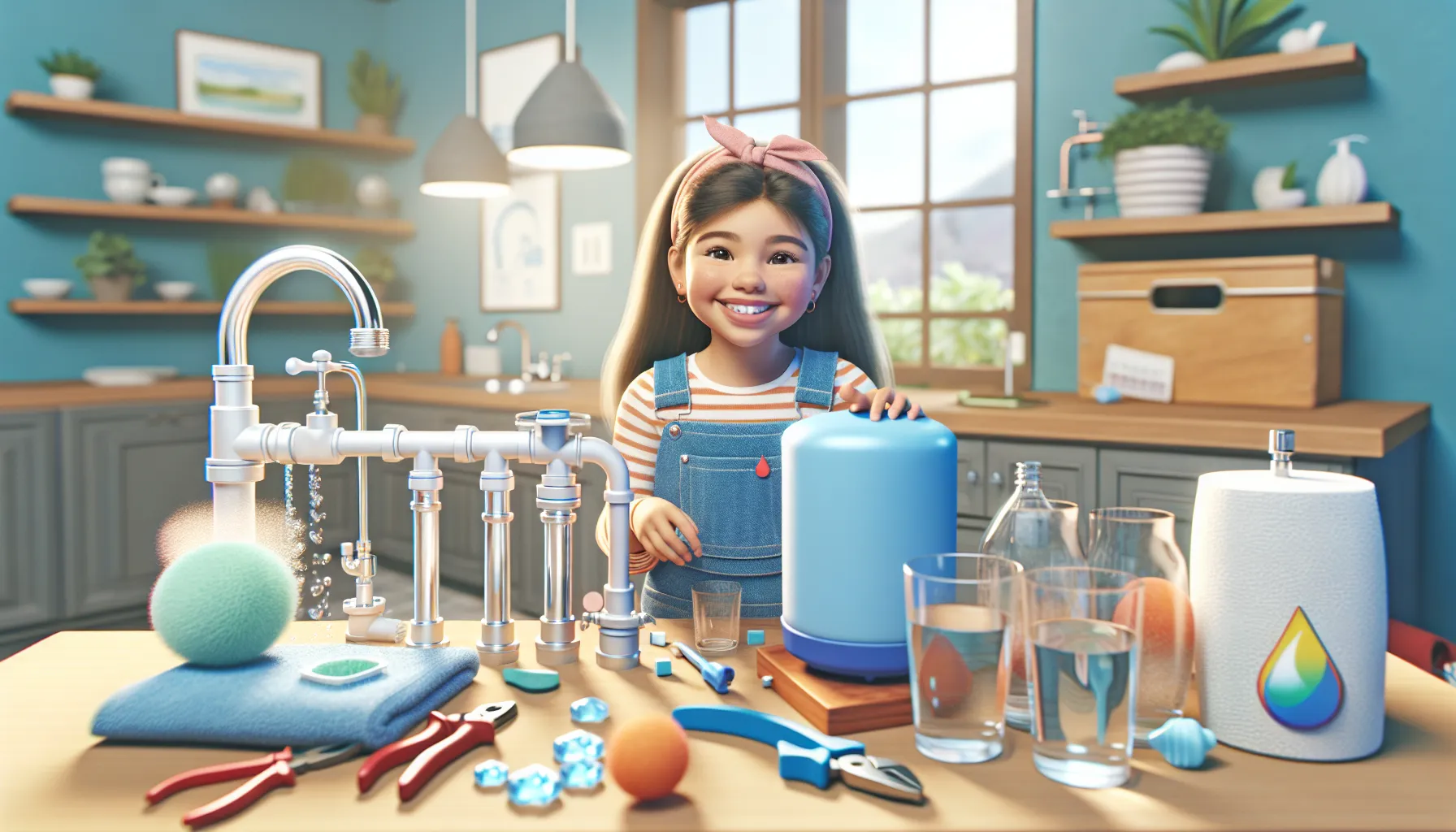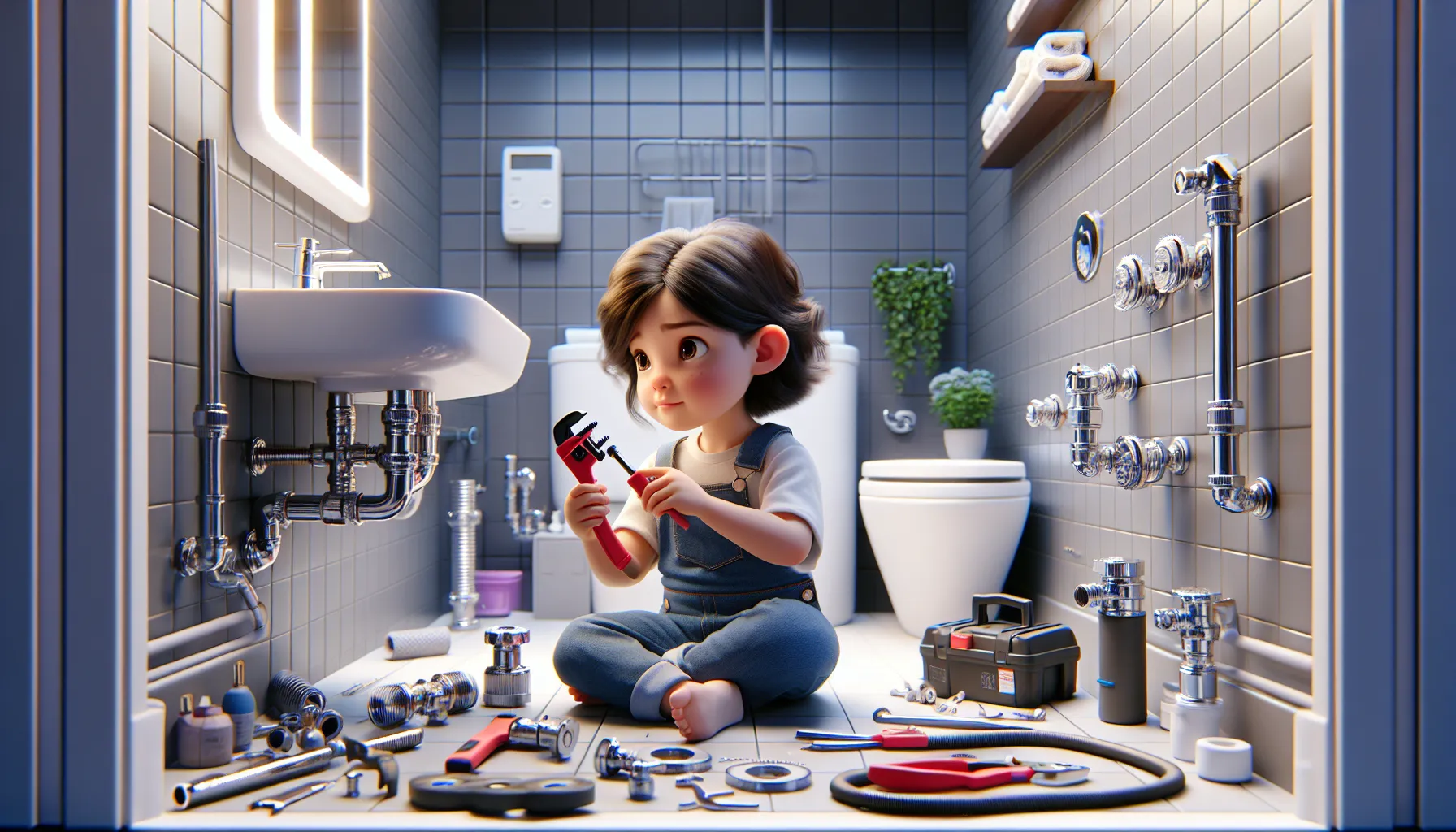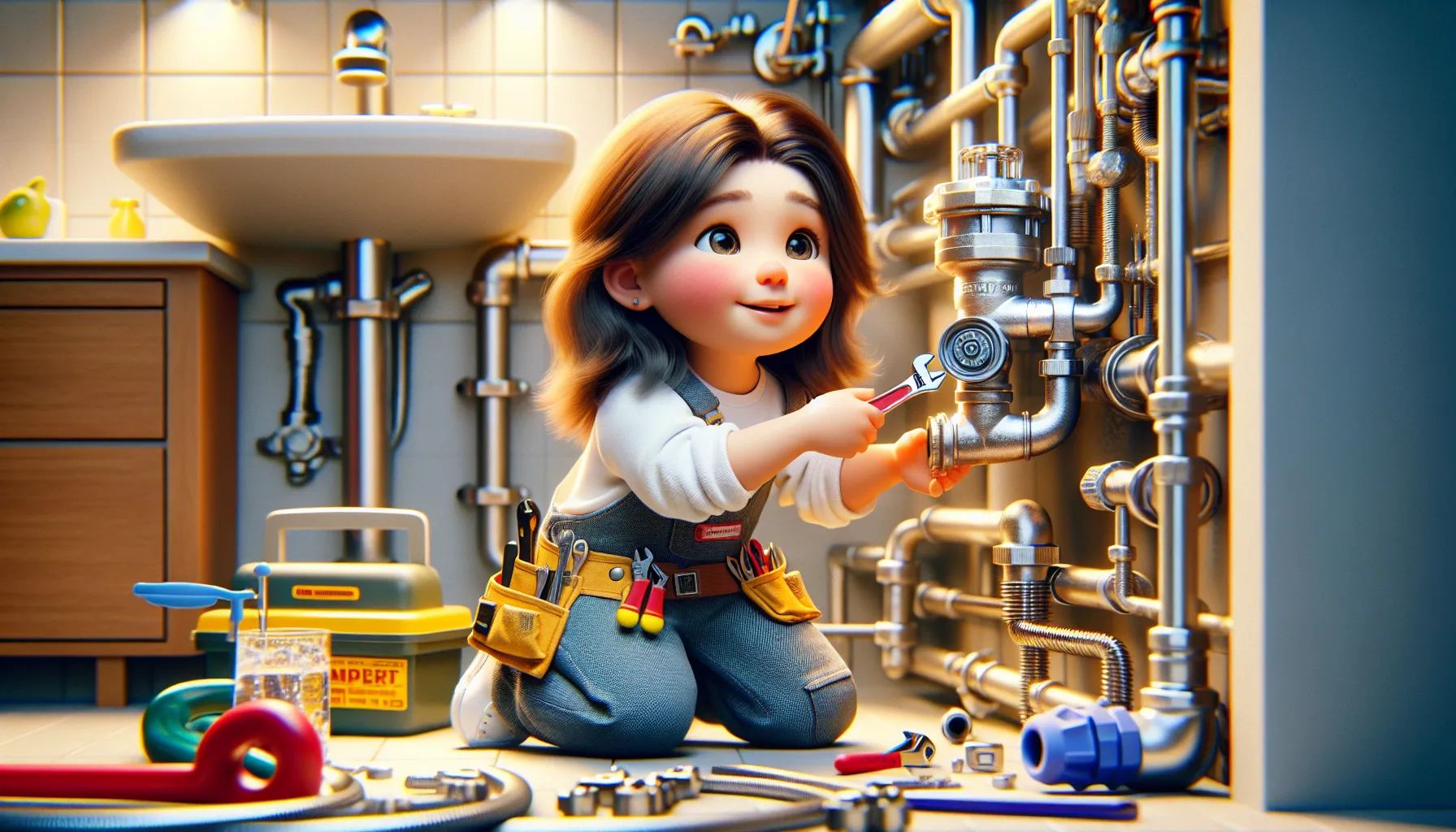Over time, hard water can wreak havoc on your pipes, appliances, and even your skin. That’s why it’s crucial to consider installing a water softener in your home. These devices work by removing minerals like calcium and magnesium that cause water hardness, preventing costly damage and improving the overall quality of your water.
With a water softener, you can say goodbye to limescale buildup, extending the life of your plumbing fixtures and appliances. Not only will your dishes come out cleaner and your clothes softer, but your skin and hair will also thank you for the gentler water. Investing in a water softener is an excellent way to protect your home and enjoy the benefits of soft water every day.
Key Takeaways:
- Hard water can cause damage: Installing a water softener can help prevent damage to your appliances, plumbing, and fixtures caused by the buildup of mineral deposits.
- Improves the efficiency of household appliances: Water softeners can help extend the lifespan and improve the efficiency of water heaters, dishwashers, washing machines, and other appliances that use water.
- Reduces water heating costs: Softened water heats more efficiently than hard water, which can lead to energy savings and lower utility bills.
- Provides softer skin and hair: Softened water can help make your skin and hair feel softer and smoother by eliminating the mineral buildup that can cause dryness and irritation.
- Increases the lifespan of clothing: Using softened water for laundry can help preserve the color, texture, and lifespan of your clothing by preventing mineral buildup and improving the effectiveness of detergents.
Understanding Hard Water
It is crucial to understand what hard water is before delving into the reasons for installing a water softener. Hard water contains high levels of minerals, particularly calcium and magnesium. These minerals are picked up as water passes through rock formations and soil, leading to the hardness of the water.
What is Hard Water?
Any water that contains a substantial amount of dissolved minerals, specifically calcium and magnesium, is referred to as hard water. The degree of hardness can vary depending on your geographical location. The hardness of water is usually measured in grains per gallon (GPG) or parts per million (ppm).
Common Problems Associated with Hard Water
Water containing excessive minerals can lead to several issues in your home. One of the most common problems associated with hard water is the buildup of scale in pipes, appliances, and fixtures. This can result in reduced water flow and efficiency, leading to costly repairs or replacements. Additionally, hard water may prevent soap and detergents from lathering properly, causing you to use more products than necessary.
It is necessary to address hard water problems promptly to avoid long-term damage to your plumbing system and appliances. Installing a water softener can effectively reduce the mineral content in your water, alleviating these issues and providing you with quality, softened water throughout your home.
The Science Behind Water Softening
Some households may struggle with hard water, which is caused by high levels of minerals like calcium and magnesium in the water supply. Water softening is the process of removing these minerals to improve the quality of water for everyday use. This is where water softeners come into play.
How Water Softeners Work
Water softeners work by using a process called ion exchange to remove the minerals that cause hard water. The resin beads in the water softener are charged with sodium ions. As hard water passes through the resin tank, the calcium and magnesium ions are attracted to the resin and exchange places with the sodium ions. This process effectively softens the water before it enters your home.
Types of Water Softeners
There are two main types of water softeners: salt-based and salt-free. Salt-based water softeners use resin beads and sodium chloride to remove minerals from the water. On the other hand, salt-free water softeners use potassium chloride or template-assisted crystallization to neutralize minerals without removing them.
| Salt-Based Water Softeners | Salt-Free Water Softeners |
| Uses resin beads and sodium chloride | Utilizes potassium chloride or TAC |
| More effective at removing minerals | Does not remove minerals, only neutralizes them |
| Requires occasional salt refills | Low maintenance, no salt refills needed |
| Can be more costly upfront | Generally more affordable |
| Result in softer water for daily use | May not fully eliminate hardness |
Knowing the difference between these two types of water softeners can help you make an informed decision based on your household’s needs and preferences.
Benefits of Installing a Water Softener
Extended Appliance Lifespan
For those looking to extend the lifespan of their household appliances, investing in a water softener is a wise choice. Hard water contains high levels of minerals like calcium and magnesium, which can lead to mineral buildup within appliances such as water heaters, dishwashers, and washing machines.
Improved Cleaning and Laundry
To ensure your cleaning efforts are more efficient and effective, consider installing a water softener in your home. Soft water lathers more easily with soap, allowing for better cleaning results in dishwashing and laundry.
This means you can use less detergent and still achieve cleaner clothes and dishes, ultimately saving you money in the long run.
Enhanced Water Quality for Personal Use
This subsection discusses how a water softener can improve the quality of water used for personal tasks such as bathing and cooking. Soft water can result in smoother skin and silkier hair, as it does not leave behind the mineral residue that hard water does.
The absence of mineral buildup also leads to softer fabrics and helps preserve the longevity of clothing.
Potential Health Advantages
Enhanced water quality from a water softener can also have potential health benefits for individuals. By reducing the intake of minerals like calcium and magnesium through water consumption, individuals may see improvements in digestive health and overall well-being.
Additionally, softer water is gentler on the skin, which can be beneficial for those with sensitive skin conditions.
Economic Considerations
After considering the health benefits of installing a water softener in your home, it’s crucial to also look at the economic implications. Cost-Benefit Analysis of Water Softener Installation can help you determine whether the investment is worth it.
Cost-Benefit Analysis of Water Softener Installation
Softener installation costs can vary depending on the size and type of system you choose. However, when weighing the initial cost against the long-term benefits, many homeowners find that the investment is well worth it. By reducing the wear and tear on your appliances, you can potentially save money on repair and replacement costs in the future.
Long-Term Savings and Efficiency
For many households, one of the most significant benefits of a water softener is the potential for long-term savings. Not only can a water softener extend the lifespan of your appliances, but it can also improve their efficiency. With softened water, you may find that your appliances require less energy to operate effectively, resulting in lower utility bills over time.
Another important consideration is the reduction in the amount of soap and cleaning products you’ll need to use with softened water. The minerals in hard water can react with soap, making it less effective and requiring you to use more. With soft water, you can use less soap and still achieve the same level of cleanliness, saving you money in the long run.
Available Financing and Rebate Programs
Efficiency is crucial when it comes to water softener financing. Some manufacturers offer financing options that can help make the initial investment more manageable. Additionally, many utility companies and local governments offer rebates for installing water softeners to promote water conservation and efficiency. Be sure to research available financing and rebate programs in your area to see if you qualify for any cost-saving incentives.
Environmental Impacts
Once again, let’s probe into the environmental impacts of installing a water softener in your home. While some may argue that water softeners have negative effects on the environment, it is necessary to understand the full picture.
Environmental Benefits of Using Water Softeners
For starters, water softeners can reduce the amount of detergent and soap needed for cleaning, which in turn leads to a decrease in chemical pollution in waterways. By using softened water, you can also extend the lifespan of your appliances and plumbing, leading to less waste and a reduced carbon footprint.
Addressing Salt Discharge Concerns
To address concerns about salt discharge from water softeners, it is crucial to consider the advancements in salt-efficient technology. Modern water softeners are designed to minimize salt usage while still effectively softening water. By properly maintaining and regulating your water softener, the amount of salt discharged can be significantly reduced.
It is important to note that while salt discharge is a valid concern, the overall environmental benefits of using a water softener can outweigh this issue. By investing in a high-quality, salt-efficient water softener, you can enjoy the advantages of softened water while minimizing the environmental impact.
Choosing the Right Water Softener
Assessing Your Household’s Water Needs
Right from the start, it is crucial to assess your household’s water consumption patterns and needs before investing in a water softener. Consider factors such as the number of people in your household, average daily water usage, and the hardness of your water supply. Understanding these aspects will help you determine the right size and capacity of the water softener required to meet your specific needs.
Features to Look for in a Water Softener
Water softeners come with a variety of features, so it’s important to look for key factors when making your selection. Look for features such as regeneration settings, salt efficiency, and water usage. Additionally, consider the type of water softener technology that best suits your preferences, whether it’s salt-based, salt-free, or dual-tank systems.
Water softeners with advanced features like programmable settings, high flow rates, and smart technology capabilities can provide added convenience and efficiency in maintaining soft water throughout your home.
Installation and Maintenance Considerations
Water softener installation and maintenance requirements vary depending on the type and model of the system. Consider factors such as available space for installation, access to a drain for regeneration, and ease of maintenance tasks like refilling salt or replacing filters. It’s imperative to factor in these considerations to ensure smooth operation and longevity of your water softener system.
Considerations should also be given to the frequency of maintenance tasks like cleaning the brine tank, checking salt levels, and monitoring water softness levels. Following manufacturer guidelines and scheduling regular maintenance can help prevent issues and maximize the effectiveness of your water softener.
Regulatory and Compliance Issues
Understanding Local Water Softener Regulations
Not all areas have the same regulations when it comes to water softener installation. It is crucial to research and understand the local laws and guidelines in your area before installing a water softener. Some regions may have restrictions on the type of water softeners that can be used or may require permits for installation.
Compliance with Environmental Standards and Best Practices
Water softeners can have an impact on the environment if not properly maintained or if outdated models are used. Compliance with environmental standards and best practices is important to ensure that your water softener is not contributing to pollution or wasting water. By using modern, efficient water softeners and following recommended maintenance procedures, you can minimize the environmental impact of your water softener system.
Environmental sustainability is a key consideration when it comes to water softener use. By choosing environmentally friendly options and ensuring proper maintenance, you can reduce your carbon footprint and protect water quality. It is important to stay informed about the latest technologies and practices in water softening to make environmentally conscious decisions for your home.
Summing up
Upon reflecting on the benefits of installing a water softener, it becomes evident that this household appliance offers numerous advantages that can greatly improve the quality of your daily life. From extending the lifespan of your plumbing and appliances to providing softer skin and hair, a water softener is an investment that pays off in various ways.
Considering all the benefits, it is clear that installing a water softener is a wise choice for homeowners looking to enhance their water quality and overall well-being. By reducing the negative effects of hard water, a water softener can help you save money on repairs and replacements while also enjoying the benefits of softer, healthier water for you and your family.
FAQ
Q: What is a water softener?
A: A water softener is a device that is designed to remove minerals like calcium and magnesium from water, making it “soft” and more suitable for everyday use.
Q: Why should I consider installing a water softener?
A: Installing a water softener can help prevent limescale buildup in your pipes and appliances, extend the lifespan of your plumbing system, and provide you with softer skin and hair.
Q: How does a water softener work?
A: Water softeners work through a process called ion exchange, where the calcium and magnesium ions in the water are exchanged for sodium ions, resulting in softened water.
Q: Are there different types of water softeners available?
A: Yes, there are different types of water softeners available, including salt-based water softeners, salt-free water softeners, and dual-tank water softeners, each with its own advantages and disadvantages.
Q: How do I choose the right water softener for my home?
A: To choose the right water softener for your home, consider factors such as the hardness of your water, the size of your household, your budget, and the type of water softener system that best fits your needs.



